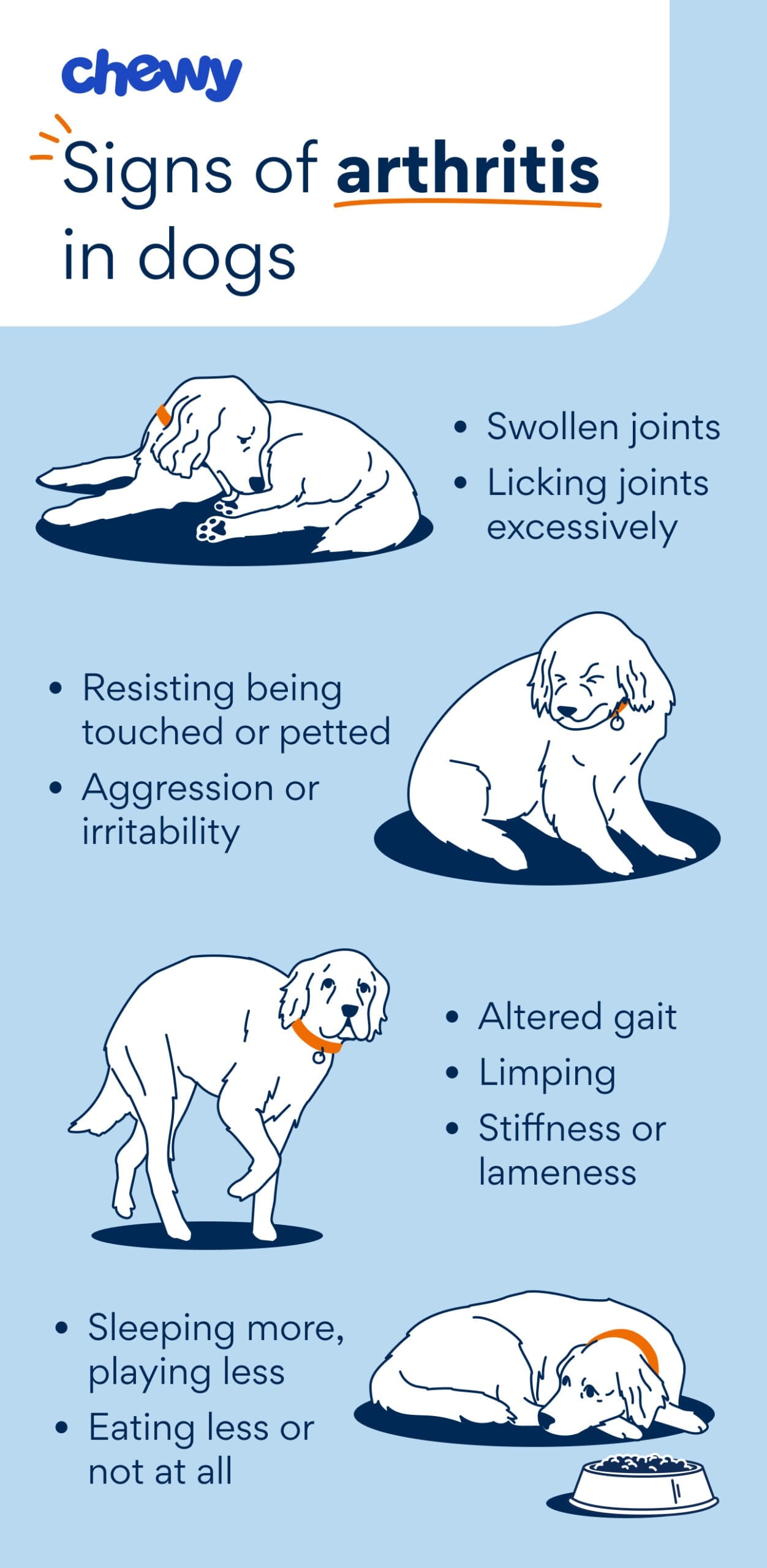Arthritis is a prevalent condition that affects most dogs as they age, causing inflammation, swelling, and tenderness in one or more joints. This can stem from genetics, infection, disease, injury, overuse, or simply the natural aging process. Fortunately, there are various strategies you and your veterinarian can employ to help your canine companion manage their discomfort and improve their joint health.
Comprehensive Approach to Dog Arthritis Treatment
The most effective way to ensure a good quality of life and successful treatment for dogs with arthritis is through a multimodal approach. This involves combining different types of medications and joint supplements. Additionally, making simple adjustments to your dog’s daily routine and living environment can provide significant relief. It’s crucial to consult your veterinarian before starting any new treatment plan.
The Importance of Weight Management
Maintaining a healthy weight is fundamental in alleviating joint pain for dogs. Excess weight puts additional pressure on the joints, exacerbating pain and discomfort. By controlling your dog’s weight, you can significantly ease their discomfort as they get older. Discuss with your veterinarian to determine the ideal weight for your pet and establish a long-term weight management strategy.
Tailored Exercise and Physical Therapy
Moderate, daily exercise, coupled with physical therapy and massage, can be highly beneficial for dogs suffering from arthritis. Opt for short, frequent walks – around 10 to 15 minutes, three to four times a day. Consistency is key, and avoiding high-impact activities like excessive ball chasing, running, or jumping will help prevent increased stress or pain on their joints.
Consider consulting a certified small animal physical rehabilitation practitioner. They can guide your dog through specialized therapeutic exercises, including passive stretching, range of motion exercises, controlled obstacle walking, and underwater treadmill sessions.
Physical therapy for dogs aims to restore or enhance mobility, function, and overall quality of life. The goals often include weight loss, pain and inflammation reduction, improved range of motion and balance, and increased muscle strength. Common techniques include passive range of motion, treadmill work, underwater treadmill sessions, massage, and therapeutic exercises.
Medical Interventions for Arthritis
While there isn’t a cure for arthritis in dogs, several medications can help manage joint pain and inflammation effectively.
- Librela: This is a monthly injection administered by your veterinarian, utilizing anti-nerve growth factor (NGF) monoclonal antibody (Mab) therapy to treat osteoarthritis-associated pain in dogs.
- Corticosteroids: In certain situations, steroids may be used for short or long-term management of arthritis-related inflammation and pain. It is critical to note that steroids and NSAIDs should never be used concurrently, as this can lead to serious side effects like stomach ulcers. Always inform your veterinarian about all medications your pet is currently taking.
Canine Arthritis Supplements
When selecting dog arthritis supplements, look for ingredients known to support joint health, such as:
- Methylsulfonylmethane (MSM)
- Glucosamine hydrochloride
- Long-chain omega-3 fatty acids (including ETA, EPA, and DHA)
- Chondroitin sulfate
- Green-lipped mussel
For breeds predisposed to developing arthritis, it’s advisable to introduce joint supplements as early as 8 weeks of age. Some breeds commonly at risk include Labrador Retrievers, German Shepherds, Golden Retrievers, and Rottweilers.
Supplements and dietary additives can sometimes cause gastrointestinal upset, so always consult your vet before administering them to your dog.
Specialized Diets for Arthritis
While some over-the-counter large breed dog foods may contain beneficial ingredients like omegas or glucosamine and chondroitin, prescription veterinary diets are specifically formulated to support joint mobility.
Exploring Alternative Therapies
As a dedicated pet parent, you might consider alternative therapies to complement primary treatments and further alleviate your dog’s joint pain.
Potential alternative therapies include:
- Acupuncture: This involves inserting fine needles into specific points on the body. Clinical evidence suggests that acupuncture, when combined with a multimodal therapy approach, can effectively reduce chronic joint pain in dogs.
- Laser Therapy: Low-level lasers utilize penetrating light to enhance oxygen and blood flow to the joints, thereby reducing inflammation and pain.
- Shockwave Therapy: This treatment employs high-intensity sound waves to decrease inflammation and manage arthritis.
- Electrical Stimulation: Also known as neuromuscular stimulation, electrical stimulation helps strengthen muscles and combat muscle wasting in dogs with mobility issues. Transcutaneous electrical nerve stimulation (TENS) can also be used for pain relief.
Essential Lifestyle Modifications at Home
Implementing a few basic modifications around your home can significantly ease your dog’s pain and anxiety.
- Nonslip Surfaces: Dogs experiencing arthritis and joint pain may develop a fear of walking on slippery floors like hardwood or tile, as limited mobility can lead to falls and pain. Using nonslip mats, rugs, and carpets on these surfaces can help your dog move around the house with greater confidence. Strategically placing nonslip rugs at the top and bottom of stairs, and near furniture like couches and beds, can reduce the impact on their joints.
- Orthopedic Dog Beds: Low-profile orthopedic dog beds can ease joint pain, making it easier for your dog to stand up without struggling. Ensure your pet’s favorite resting and sitting spots are equipped with thick, supportive bedding and nonslip mats to prevent injury or pain when they transition from resting to standing.
Ultimately, the most effective arthritis protocol for your dog will likely involve a combination of medications, treatments, and supportive aids to ensure their comfort and happiness. The primary goal is to provide your furry companion with a high quality of life and many pain-free days. Discuss the optimal blend of therapies and arthritis medication for your dog with your veterinarian.

